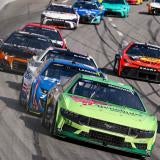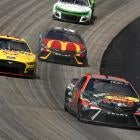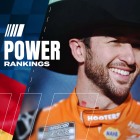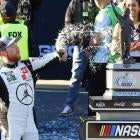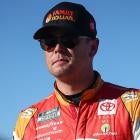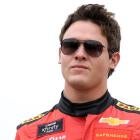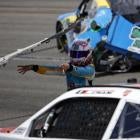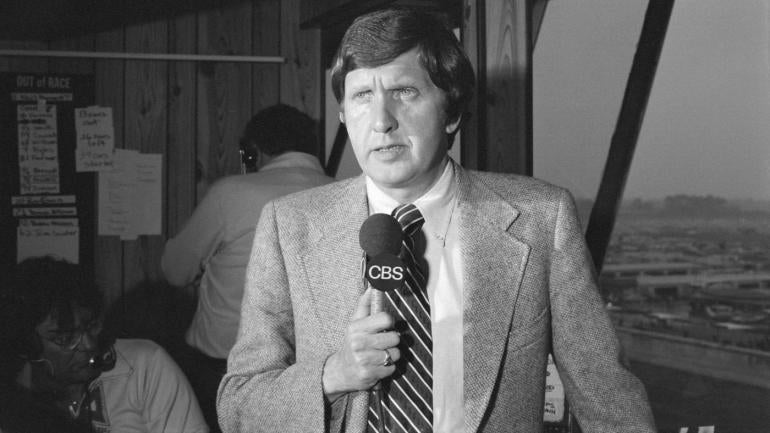
Ken Squier, one of the most influential broadcasters in the history of NASCAR and a man who played a central role in making stock car racing a television sport, died Wednesday evening at his home in Vermont following a long period of failing health. He was 88.
Cutting his teeth as a broadcaster at the short tracks of New England -- namely the Thunder Road International SpeedBowl in Vermont, which he owned until 2017 -- Squier would become the co-founder of Motor Racing Network alongside NASCAR founder Bill France Sr. in 1970, bringing NASCAR Cup Series races to the radio and providing a platform for the formative years of the sport's broadcasting. As MRN grew throughout the decade, the next step was to bring NASCAR from condensed segments (with some live portions) on television programs such as ABC's Wide World of Sports to live, start-to-finish broadcasts.
In 1978, Squier was among a group of NASCAR figures who sought to convince CBS television executives about the possibility of broadcasting the sport's biggest race, the Daytona 500, live from start to finish for the first time in its history. Initially, the idea of a complete live telecast was unappealing to the network: While NASCAR racing had been shown in parts on CBS Sports Spectacular before, concerns about the viability of a live, four-hour program -- something that had never truly been tried for auto racing before -- presented a major hangup. But eventually, Squier was able to successfully lobby CBS Sports vice president of business affairs Neal Pilson, and in May 1978 the network would announce the signing of a five-year contract to broadcast the Daytona 500.
Squier would serve as the race's lead announcer, and his maestro-like call of the 1979 Daytona 500 would prove pivotal in illustrating what became one of NASCAR's greatest races ever to millions of people -- many of whom were stuck inside watching television due to a snowstorm affecting most of the east coast. His defining call would come on the final lap, as Donnie Allison and Cale Yarborough would crash racing for the win, giving way to a battle to the checkered flag between Richard Petty and Darrell Waltrip before Yarborough and the Allison brothers got in a post-race fistfight.
"That, as much as the finish ... was something that got in people's minds, and they couldn't get rid of it," Squier told Dirty Mo Media earlier this year of the Allison-Yarborough fight. "And what a way to start this Daytona image of American stock car racing."
The well-spoken Squier became known for having a very distinct style, often using metaphors and grandiose vocabulary in describing the action on-track. Beyond his play-by-play style, Squier's way with words led to him being credited with coining several distinct phrases in NASCAR: Namely the Daytona 500 as "The Great American Race" and stock car racing as a sport of "common men doing uncommon things."
Squier was the lead announcer for each Daytona 500 on CBS, as well as other NASCAR races on CBS and TBS, from 1979 until 1997, after which point he was moved into a studio role for the network's final three Daytona 500 telecasts from 1998 to 2000. Squier continued to work as a racing broadcaster in various capacities in the 2000s and into the 2010s, taking play-by-play duties for the last time in the 2015, 2016 and 2017 Southern 500s, where he called a portion of the race as part of NASCAR Throwback Weekend.
In addition to his role as an announcer, Squier also made other important contributions to the way NASCAR was presented on television. He is credited with helping to develop NASCAR in-car camera technology, which added great dimension to CBS Sports' NASCAR telecasts and is now commonplace today.
Squier's contributions to NASCAR and overall legacy have been honored in not one, but two ways by the NASCAR Hall of Fame. In 2012, NASCAR named the sport's award for media excellence the Squier-Hall Award in honor of Squier and longtime MRN broadcaster Barney Hall, and the award is given out each year as part of the NASCAR Hall of Fame's annual class. Squier himself would be inducted into the Hall of Fame in 2018.
"Though he never sat behind the wheel of a stock car, Ken Squier contributed to the growth of NASCAR as much as any competitor. Ken was a superb storyteller and his unmistakable voice is the soundtrack to many of NASCAR's greatest moments," read a statement by NASCAR CEO Jim France. "His calls on TV and radio brought fans closer to the sport, and for that he was a fan favorite. Ken knew no strangers, and he will be missed by all. On behalf of the France family and all of NASCAR, I offer my condolences to the family and friends of Ken Squier."








